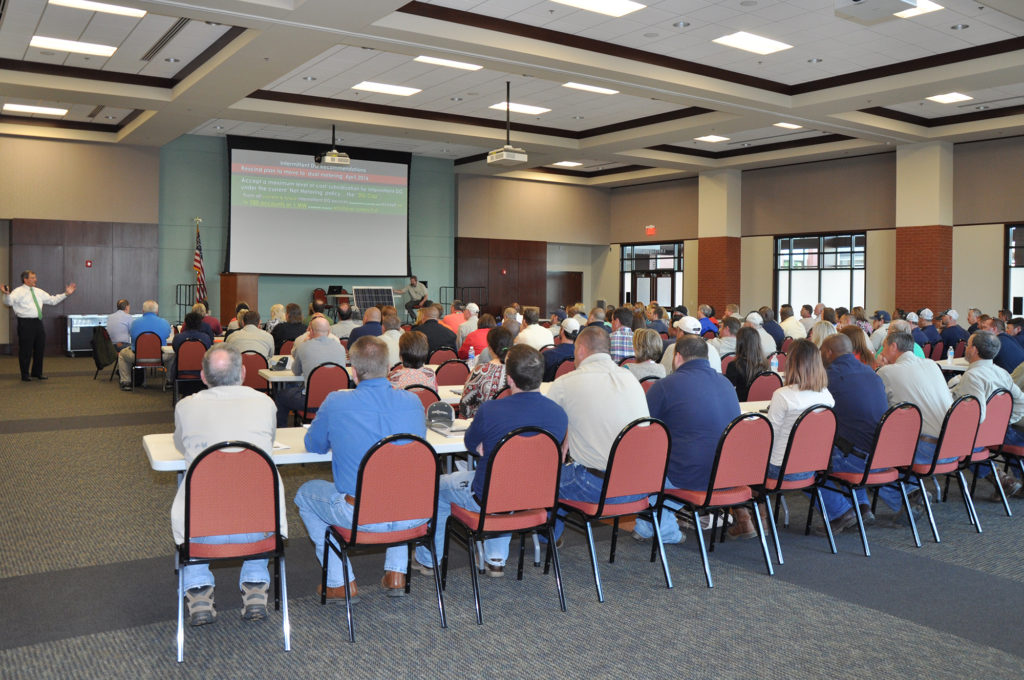
Imagine standing in a food line, suddenly being quizzed about solar energy—and being able to talk about it intelligently.
That’s exactly what happened when David Yelton, an agricultural specialist at Flint Energies in Warner Robins, Goergia, when he was attending an awards banquet.
“A parent and Flint member saw my Flint shirt and struck up a conversation. He wanted to know about the solar farms west of Butler (Georgia) and solar in general,” Yelton recalled. “Thanks to the training we received, I was able to talk intelligently—I think—about the subject and answer his questions.”
Talk about cooperative development. A program at Flint helps every employee—from accountants to maintenance personnel—spread the word about co-ops in general and solar in particular.
The co-op held a class called “Solar 101,” and “every single employee, no matter what their function,” attended, said Jimmy Autry, senior vice president of member and community relations.
That’s 235 people, ranging from numbers crunchers to IT experts. But why would they need to know about solar?
“When you leave the office wearing your Flint shirt, anybody can ask you” about solar, Autry said. “We need everybody to be able to answer the basic questions. Whether it’s at the grocery store, in church, or at the PTA meeting, people are saying, ‘I’ve been thinking about solar, what do you think?’ We just don’t want employees to say, ‘I don’t really know.’”
Autry said the goal of Solar 101 is not to make everyone an expert, but to provide some basics.
“We want everybody to be comfortable enough to say, ‘I know a little bit about it. Have you thought about how old your house is, how old your roof is, which way does it face, are there a lot of trees?’ ”
Employees now also know to ask if members have made simple energy improvements, including caulking and insulation.
A contractor who first worked for Green Power EMC teaches the class, along with Solar 102 and 103, which are more technical and only for employees who need that level of expertise.
Flint has 20 members—out of 87,600—with rooftop solar. “That’s happened over the last 8-10 years,” Autry said. “It hasn’t been a groundswell.” But that said, the co-op wants to be the community’s trusted energy adviser.
“Members are going to look to somebody who can answer the questions for them,” Autry said.
“Not that we think we’re going to get 1,000 people calling us tomorrow, but in preparation for the future so that we stay in front of it and do as a cooperative should do: Remain the trusted voice for the members.”
Michael W. Kahn is a staff writer at NRECA.